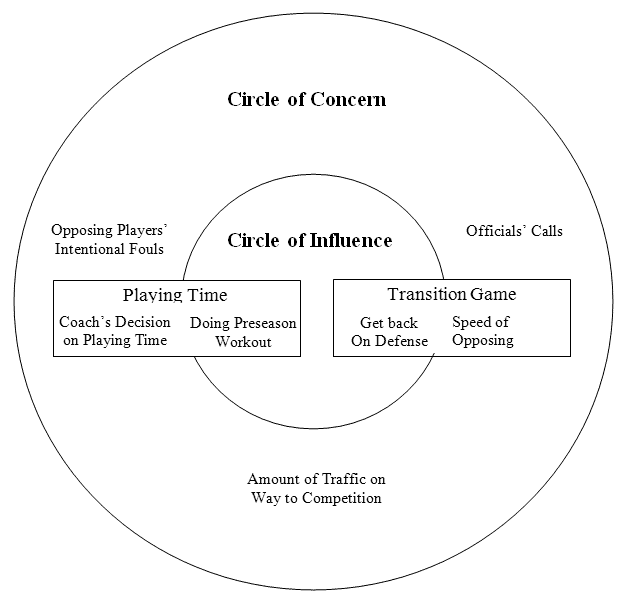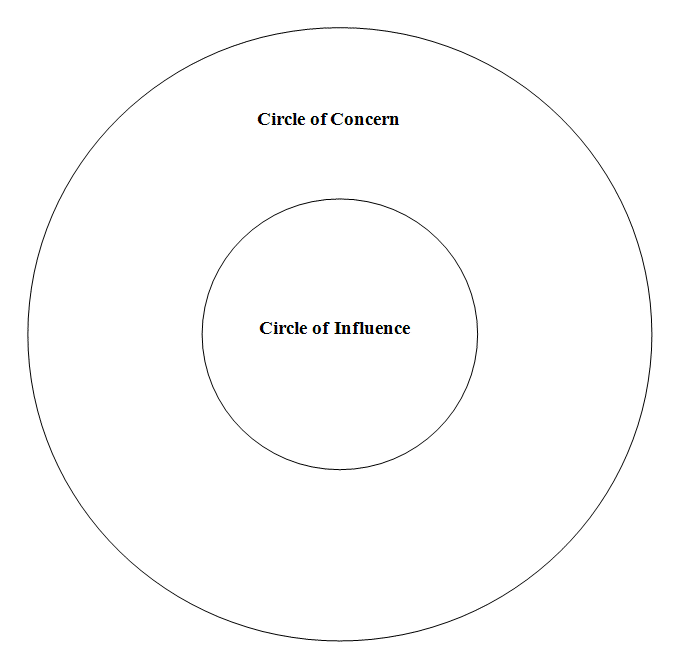|
Introduction to Psychological
Skills Training: Mental Training Tools
written by Dr.
Christine Lottes
In last
month’s article, "Mental Training Skills and
Tools for Athletes: Training Your Athletes To Be Mentally
Tough," we looked at:
- how coaches want athletes to be mentally tough,
- how athletes learn mental skills
(similar to steps used in learning physical skills of a
sport), and,
- the benefits for athletes of
going through a mental training program.
 The
article ended with a promise that in future issues of pelinks4u
information and "drills" would be presented to assist
coaches with training athletes in specific mental skills and
tools. The
article ended with a promise that in future issues of pelinks4u
information and "drills" would be presented to assist
coaches with training athletes in specific mental skills and
tools.
During either the off-season or early in the pre-season is
the ideal time to introduce athletes to mental training tools.
This training can coincide with workouts focused on sport-specific
skill development and physical conditioning.
Just as in other areas of coaching, all
coaches involved with the team need to understand and support
this aspect of the athletes' training. It is important during
the first meeting that the coach(es) "sells" the
athletes on how the program will develop mental toughness.
During this first, one-hour meeting coaches will be introducing
the mental toughness skills the athletes will be learning.
After a brief introduction, athletes will spend the majority
of the training session drilling in the area of concern/influence.
This skill is necessary for athletes understanding in what
areas to focus their time and energy, and over what areas
they have no influence. Once this skill is mastered, coaches
will find that athletes are more proactive. Athletes will
take greater responsibility for their own behaviors, take
action in areas over which they have influence, and spend
far less time and energy worrying about concerns outside of
their control.
At this first meeting with your
athletes bring the following:
- the coach's script
- a copy of the athlete’s
practice plan for each athlete (follows the coach’s
script)
- pencils or pens
- chalk or dry erase markers
Coach's Script for: Introduction to Psychological Skills
Training: Mental Training Tools
I'm here to help you and to help our team be as successful
as possible this season.
What's more important for sport - the body...the mind...both?
You need both!
What gets in your way of your being as successful a __________(Coach-
put your sport in the blank) player as you could be?
I'm here to help us learn some psychological skills that
will toughen us up mentally and deal with some of those things
that keep you from being as successful, plus we'll learn some
new mental tools that you can apply to sport or to any other
area of your life.
What are the skills we'll be learning, how do they work,
and what can they do for you as athletes?
We are going to learn 6 basic skills over the next two weeks
and then we are going to spend all season practicing them,
just like we'll be practicing all of the ___________ (insert
your sport) skills all season.
The 6 basic skills are: goal setting skills, imagery skills,
relaxation and energization, self-talk, energy management,
and stress management. Briefly...
- Goal Setting Skills: there are goals
we can control and goals we can't.
- We are going to help you set
goals you can control.
- As you accomplish these goals
you will feel more and more confident as an athlete
and as a person.
- Imagery Skills:
these allow you to see yourself and your teammates successfully
playing _____________ (insert your sport).
- Let's say each of us would
sit here right now and picture in our mind moving the
ball down the field or, _____________________________.
- Fact: whether you imagine yourself
doing it or are actually doing it, the effect on your
brain is almost identical to the actual experience.
- You only work with _______
(ex. a ball) minutes a day, and that time is very important,
but you can also input code into your brain at any time
during the day - practice a skill, plan a new sequence
of skills, correct a mistake...
- Relaxation and Energization:
you've heard of the phrases psyched-up or psyched-out. Each
of us performs best at a certain level of mental and physical
readiness.
- Self-Talk: Self-talk
is the steady stream of thoughts and internal dialogue that
goes on in our heads almost constantly. Your thoughts have
a major impact on your mood, emotions, and performance.
- Energy Management:
Energy management has to do with helping you control your
arousal, or the physical and mental energy that fuels your
athletic performance.
- I just mentioned the phrases
psyched-up or psyched-out. Each of us performs best
at a certain level of mental and physical readiness.
- We do a physical warm-up before
practice and before a game.
- We also know we need a mental
warm-up, but how do we do it so that we're at that optimal
level between where we're not psyched up enough and
where we're too psyched-up so that we're psyched-out,
nervous, and end up not playing as well as we can?
- Stress Management:
we all have situations that we feel stressed about. We'll
learn how to handle stress whether it comes from sport or
from some other part of our lives so that when we're competing,
we can do our best.
Learning mental tools isn't a quick fix. We must learn the
skills and practice the skills.
How can learning psychological
skills be compared to learning physical skills?
- Both must be approached systematically.
- Can't expect either to be performed
without appropriate instruction and practice. Need to practice
both daily.
- First practice without interference
from others.
- Gradually incorporate into the
normal practice session (increase the stress the athlete
must contend with in performing the psychological skill).
- Finally, use the skill in competitive
situations.
All 6 skills are interrelated.
They're taught in a 3-step approach:
- Learn about them - the educational phase
- Acquire them through a structured
training program
- Practice them so that they're
part of your normal practice and competitive routine.
Questions?
Concerns: Ask athletes to list things they're
concerned about (both sport and other areas of their lives).
Next draw a big circle on the blackboard/whiteboard and explain
(with examples given below) the circles. (Circles concept
is from The
7 Habits of Highly Effective People (1989) by Stephen
Covey, Fireside, NY, NY).
Example: Referring to the circle below, an athlete may be
concerned about competing. When asked about concerns, the
athlete might list the opposing players, officials, and coach's
decisions. When asked to put each of these into what can and
can't be controlled, the athlete realizes he/she can't control
opposing players' intentional fouls, officials' calls, or
if a traffic problem gets in the way of arriving at an event.
The athlete doesn't have any influence over those concerns
and so needs to not spend time or energy focused on them.
However, although the athlete doesn't have total control over
his/her playing time and transition game, he/she does have
an influence over them. Here is the teachable moment: the
athlete needs to focus time and energy on what the athlete
can control and thus influence: doing the preseason workout
can influence the coach's decision on playing time; getting
back quickly on defense can influence the success of the transition
time although the athlete can't control the speed of opposing
players.

Then tell athletes to: Pick your greatest
concern from your list. With that concern, write in the "Circle
of Concern" circle all of the things over which you have
no control, in the "Influence" circle write all
of the things over which you have control and, overlapping
both circles the concerns over which you have partial control
(list the part(s) over which you have control in the Influence
Circle and the part(s) over which you do not have control
in the Concern Circle.) Be Specific.
Control/Influence grid
on the Athletes’ Handout:
- First give an example to the athletes: If you are concerned
about playing time you can control getting to practice on
time, doing 30 extra free throws, doing your off-season
workout, talking to the coach about your concern... Pick
one of these (ex. doing 30 extra fee throws) and write when
you will do it (ex. practice tomorrow).
- Then, tell the athletes to: Fill
in the Control/Influence grid.
Ask the athletes to fill
in the blanks as you read the following sentence:
- I will spend time & energy on what I (can)
control. I won't spend time or energy on what I (can't)
control.
Summary and Assessment
- 6 Mental Toughness Skills we will be learning? Goal setting,
imagery, relaxation and energization, self-talk, energy
management, stress management.
- Focus on what you can
control. Don't focus on what you can't
control.
- Answer out loud either can or
can't control, and, if it is both, what can and what can't:
- Official's call: can't.
- What friend thinks of me: can't
but can be loving and possibly influence.
- Amount of playing time: can't
but can attend practice, work on skills.
- How I look: can't change
some things but can shower, get rest.
- Weather - can't but
can dress and prepare for it.
INTRODUCTION & CONTROL (Handout for athlete)
6 Mental Training Tools we will
be learning:
- Goal Setting Skills: there are goals we can control and
goals we can't.
- Imagery Skills: allow you to see
yourself and your teammates successfully playing your sport.
- Relaxation and Energization: you've
heard of the phrases psyched-up or psyched- out. Each of
us performs best at a certain level of mental and physical
readiness.
- Self-Talk: Self-talk is the steady
stream of thoughts and internal dialogue that goes on in
our heads almost constantly. Your thoughts have a major
impact on your mood, emotions and performance.
- Energy Management: Energy management
has to do with helping you control your arousal, or the
physical and mental energy that fuels your athletic performance.
- Stress Management: we all have
situations that we feel stressed about. We'll learn how
to handle stress whether it comes from sport or from some
other part of our lives so that when we're competing, we
can perform at our best level.
Concerns
List things you are concerned about
(both sport and other areas of your life).
Pick your greatest concern from your list. With that concern,
write in the "Circle of Concern" circle all of the
things over which you have no control, in the "Influence"
circle all of the things over which you have control and,
overlapping both circles the concerns over which you have
partial control (list the part(s) over which you have control
in the Influence Circle and the part(s) over which
you do not have control in the Concern Circle.) Be
Specific.
(Circle from The 7 Habits of Highly Effective People (1989)
by Stephen Covey, Fireside, NY, NY)

Control/Influence
| I have the greatest concern about... |
With this concern, one thing
that I have control over is... |
One action I will take
in the thing I have control over is... |
When I'll do this (in next 3 days) |
Check when Done |
|
|
|
|
|
I will spend time & energy on what I _____ control.
I won’t spend time or energy on what I can't ______.
Assessment:
- Can or can't control?...and, if it is both, what can
and what can't you control?:
- Official's call: _________________________________________________
- What friend thinks of me: ________________________________________
- Amount of playing time: _________________________________________
- How I look: ___________________________________________________
- Weather: _____________________________________________________
Upcoming August article on Mental Training .....
This issue's article focused on the Mental Training Skills
athletes need to be mentally tough. To use these skills effectively
athletes need to spend time and energy on what they can control/influence.
Once athletes understand this,they can be trained on each
skill. In the next edition of pelinks4u we will discussing
goal setting skills- types of, benefits of- and will provide
a goal setting script for coaches and a work out for athletes.
(back
to pelinks4u homepage) |




 The
article ended with a promise that in future issues of pelinks4u
information and "drills" would be presented to assist
coaches with training athletes in specific mental skills and
tools.
The
article ended with a promise that in future issues of pelinks4u
information and "drills" would be presented to assist
coaches with training athletes in specific mental skills and
tools. 
